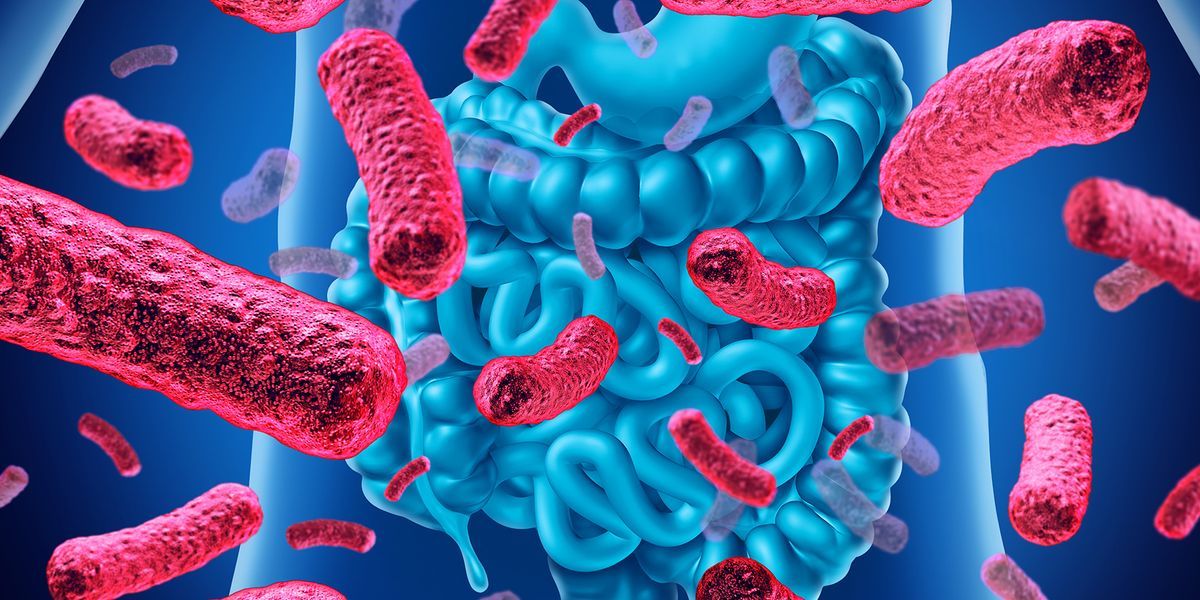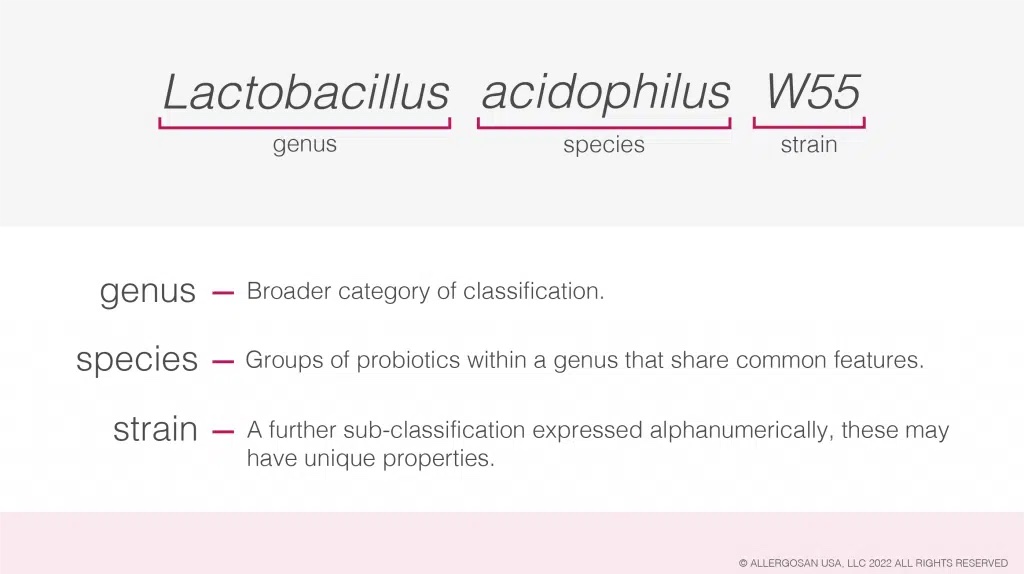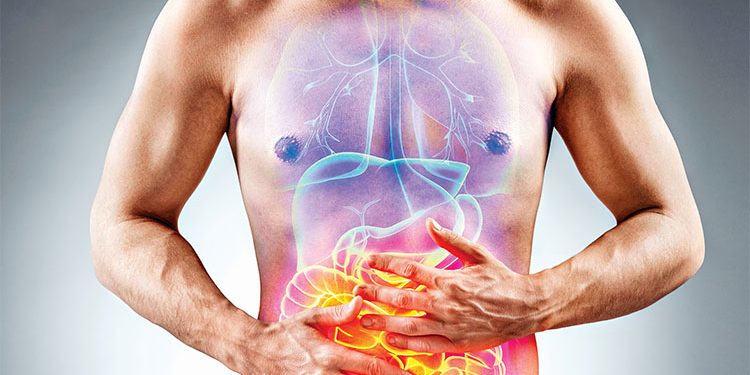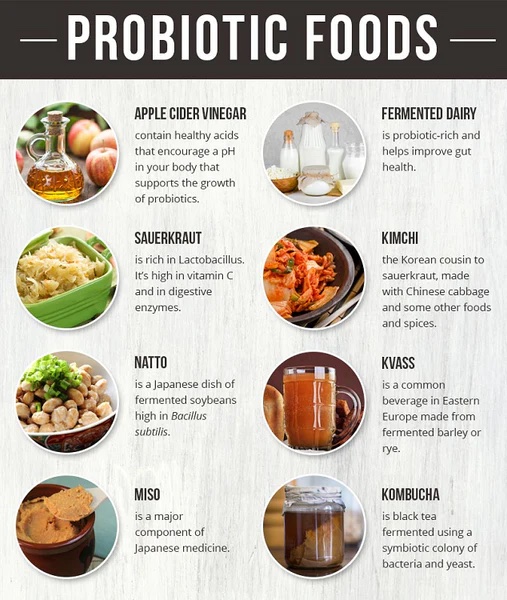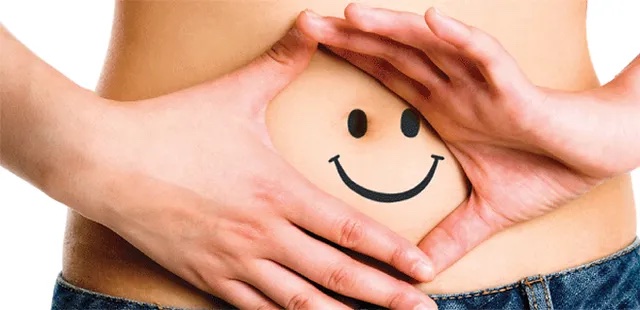You have probably heard friends talking about how yogurt, cheese, sauerkraut, or kimchi is “good for your gut” But what do they mean, and what are they talking about exactly? It turns out that your friends are likely correct, and these foods, known as probiotics, can be good for you and your health. Keep reading.
WHAT ARE PROBIOTICS?
Probiotics are generally understood as a combination of live yeasts and bacteria that naturally live within your body, and mostly in the gut.1 However, in order to truly be a probiotic, a microbe (i.e., bacteria or yeast) must meet specific criteria to include: being safely consumed, having a known benefit to humans, surviving the trip from your mouth down into the small and large intestine (stomach acid kills many microbes), and the ability to isolate/identify the microbe from the human host.1
WHAT TYPES ARE THERE?
The probiotics considered integral/foundational in the gut include Bacillus, Escherichia, Enterococcus, Streptococcus, Saccharomyces, Bifidobacterium, and Lactobacillus.2 If you ever hear these names, have a look at the chart above; this is how they are named. Within the digestive system, probiotics live amongst many other microbes including parasites, viruses, and archaea.2 As a unit, all of these constitute a microbial ecosystem, and you may have heard others call it the microbiome; home to an excess of 100 trillion microorganisms.2,3
FANCY. BUT WHAT DO PROBIOTICS DO?
Probiotics are involved in many processes that maintain the health of the host (us). Here is a small sample of benefits from Das et al4:
1. Enhances epithelial barrier function (the lining of the gut)
2. Competitive exclusion of harmful (pathogenic) organisms
3. Produces antimicrobial substances
4. Controls the immune system
5. Resolves lactose intolerance
6. Prevents diarrhea
7. Prevents inflammatory bowel syndrome
8. Prevents urogenital infections
9. Helps manage gastric ulcers
10. Reduces food allergies
11. Manages obesity
12. Reduces cholesterol absorption
13. Prevents diabetes
14. Prevents cancer
15. Produces short chain fatty acids (fuel for the large intestine cells), vitamins, and amino acids
16. Maintains oral health
WHAT HAPPENS IF THE MICROBIOME BECOMES IMBALANCED?
As mentioned previously, the microbiome is an ecosystem of many types of microbes. When they are in balance, the host is likely healthy. Sometimes, the microbiome can become disturbed, a condition known as dysbiosis.4 Specifically, dysbiosis is an imbalance between beneficial bacteria and pathogenic (disease causing) bacteria.4(2) There are three categories of dysbiosis: a loss of microbial diversity (less types), excessive growth of harmful microbes, loss of beneficial bacteria.4(2)
**A disturbance in the microbiome, is a like a disturbance in the Force (yes, a Star Wars reference)**
WHAT CONDITIONS ARE ASSOCIATED WITH DYSBIOSIS?
DeGruttola et al4(2) noted that dysbiosis has been implicated in an array of diseases to include:
1. Ulcerative colitis
2. Crohn’s disease
3. Inflammatory bowel disease (see first two)
4. Colorectal cancer
5. Obesity
6. Autism
7. Type 1 diabetes mellitus
8. Allergic disorders
WHAT CAUSES DYSBIOSIS
Dysbiosis can be driven by several factors according to Hrncir6 and Martinez et al7 such as:
1. High sugar/low fiber diets
2. Use of xenobiotics (foreign substances) like antibiotics, drugs (i.e., antacids), food additives
3. Poor hygiene (i.e., cleaning hands)
4. Poor food handling/cooking (i.e., undercooked hamburger meat, cross contamination)
5. Poor sleep
6. Inadequate exercise
Here are links to other articles that I have written concerning dysbiosis:
LINK: Organic Acid Markers and Intestinal Health
LINK: Constipation, 5-HT, and Dysbiosis
LINK: Hypochlorhydria and Dysbiosis
LINK: Probiotic Support for Small Intestinal Bacterial Overgrowth
LINK: Irritable Bowel Syndrome and Small Intestinal Bacterial Overgrowth: Exploring the Relationship
LINK: Small Intestinal Fungal Overgrowth (SIFO)
LINK: Small Intestinal Fungal Overgrowth (SIFO) and Supplemental Support
LINK: Small Intestinal Fungal Overgrowth (SIFO) and Nutritional Interventions
LINK: Detecting and Managing Small Intestinal Bacterial Overgrowth (SIBO)
WHERE CAN I FIND PROBIOTICS?
Dimidi et al8 noted that probiotics can be found in foods that have been fermented; a process, which slowly produces microbial growth within the food. Interestingly, fermented foods were produced as a means of preservation as well as enhancing the flavour (texture and taste) such as olives.8(1) However, a convenient side effect included the production of probiotics. As seen in the image above, many foods are also probiotics to include:
1. Apple cider vinegar
2. Saurkraut
3. Natto
4. Miso
5. Kiefer/yogurt/cheese
6. Kimchi
7. Kvass
8. Kombucha
Here is a list of beneficial microbes found in some of the probiotics mentioned from Dimidi et al8(3):
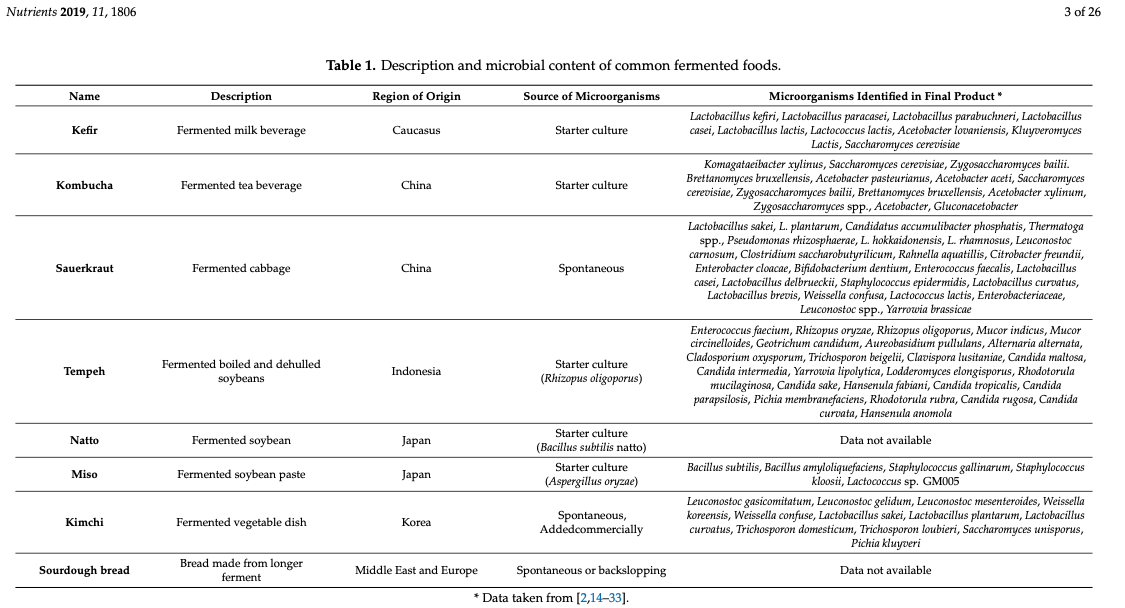 SO, PROBIOTICS ARE IN FOODS. SHOULD I SUPPLEMENT WITH PROBIOTICS?
SO, PROBIOTICS ARE IN FOODS. SHOULD I SUPPLEMENT WITH PROBIOTICS?
I believe it depends on the medical history, signs/symptoms, and goals of the individual. I would advise removing items that may worsen dysbiosis if present, like antacids (under doctor supervision), sugar, and general stress (exercise is a great way of managing anxiety/depression…see below). I would then recommend a food-first approach implementing fermented foods above, as long as signs and symptoms did not worsen. If individuals can get fecal tests or organic acids tests, these could help narrow down the type of dysbiosis (i.e., small intestinal fungal overgrowth, small intestinal bacterial overgrowth etc…) present.
I am cautious about supplementation as a first step because I think it might disincentivize individuals to consider other wider reaching and effective interventions (like removing antacids and sugar from the diet) because they also acknowledge underlying drivers of conditions. I think individuals often look for a quick fix (supplements) rather than a comprehensive strategy that seeks to uncover why a condition came to exist in the first place; an approach known as functional nutrition. If an individual continues to struggle, supplementation might be introduced at that point.
LINK: Depression: How Does Exercise Help?
SO, IF I EAT PROBIOTICS EVERYTHING WILL BE GOOD?
I am not sure it is that simple. Please remember you are made of many organ systems that all work together to keep you alive and healthy. Fermented food is part of a larger, and much more robust, set of lifestyle interventions; another piece in the puzzle of healthy living. Generally speaking, individuals are strongly encouraged to implement 3 principles everyday:
1. Exercise– alternating days of strength training/cardiovascular exercise
2. Nutrition– whole unprocessed foods rich in lean protein/vegetables with optimal hydration. Supplementation where appropriate and indicated.
3. Recovery– consistent sleep each night, daily self-massage, stretching, sauna
All of these principles work synergistically to help you reclaim your health. As you can see, a little bit of probiotics in the diet can be important and helpful, but they are part of something bigger.
CONCLUSIONS
So, there you have it; a little bit of information on probiotics, what they are, and why they are important for your health and longevity. You might have been eating them all along and didn’t realize it. If so, great. Just remember that your health is something you work on every day. Good luck!
References
1. Cleveland Clinic Website. https://my.clevelandclinic.org/health/articles/14598-probiotics. Updated March 9, 2020. Accessed July 14, 2023.
2. Probiotics: Fact Sheet for Health Professionals. National Institutes of Health Website. https://ods.od.nih.gov/factsheets/Probiotics-HealthProfessional/. Updated June 2, 2022. Accessed July 14, 2023.
3. Amara AA, Shibl A. Role of Probiotics in health improvement, infection control and disease treatment and management.Saudi Pharm J. 2015;23(2):107-114. doi:10.1016/j.jsps.2013.07.001.
4. Das TK, Pradhan S, Chakrabarti S, et al. Current status of probiotic and related health benefits. Appl Food Res.2022;2(2):1-17. doi: https://doi.org/10.1016/j.afres.2022.100185.
5. DeGruttola AK, Low D, Mizoguchi A, et al. Current understanding of dysbiosis in disease in human and animal models.Inflamm Bowel Dis. 2016;22(5):1137-1150. doi:10.1097/MIB.0000000000000750.
6. Hrncir T. Gut microbiota dysbiosis: Triggers, consequences, diagnostic and therapeutic options.Microorganisms. 2022;10(3):578. doi:10.3390/microorganisms10030578.
7. Martenez JE, Kahana DD, Ghuman S, et al. Unhealthy lifestyle and gut dysbiosis: A better understanding of the effects of poor diet and nicotine on the intestinal microbiome. Front Endocrinol (Lausanne). 2021;12:667066. doi:10.3389/fendo.2021.667066.
8. Dimidi E, Cox SR, Rossi M, Whelan K. Fermented foods: Definitions and characteristics, impact on the gut microbiota and effects on gastrointestinal health and disease.Nutrients. 2019;11(8):1806. doi:10.3390/nu11081806.
-Michael McIsaac


